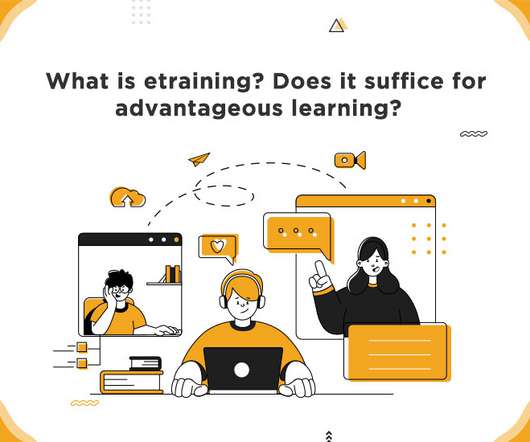February’s Top 50 Posts on Working Smarter
Jay Cross
MARCH 3, 2012
Working smarter draws upon ideas from design thinking, network optimization, brain science, user experience design, learning theory, organizational development, social business, technology, collaboration, web 2.0 patterns, social psychology, value network analysis, anthropology, complexity theory, and more.




















Let's personalize your content